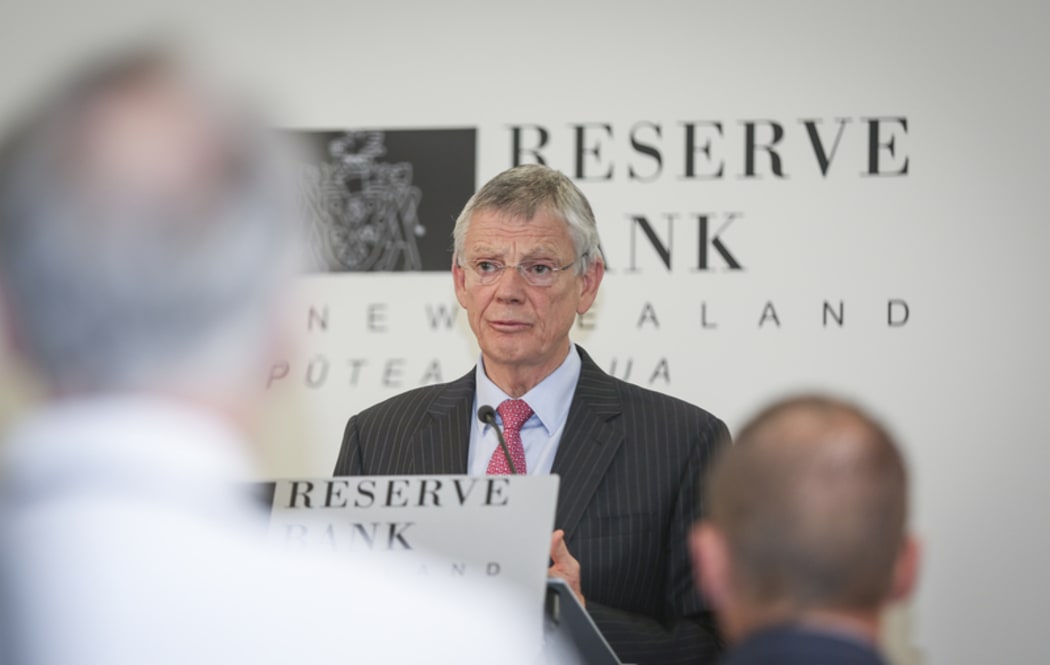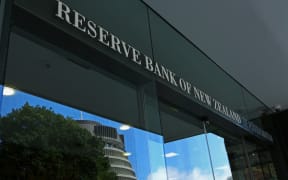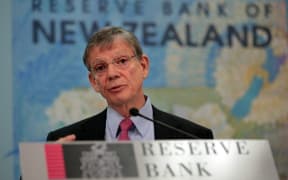An expected cut in interest rates by the Reserve Bank is unlikely to help lower the dollar, exporters say.
Last Thursday, the central bank all but cemented expectations of an interest rate cut next month when it said the currency needed to fall and inflation needed to rise to its target 2 percent from the present 0.4 percent.

Photo: RNZ / Rebekah Parsons-King
The New Zealand dollar fell about three-quarters of a cent to $US69.52 cents on the day, but has remained relatively flat since then.
Some exporters are uncertain a lower cost of borrowing will deflate the stubbornly high dollar.
"We definitely welcome a further cut. But we're not entirely sure it'll happen," Manufacturers and Exporters Association chief executive Dieter Adam said.
"One of the things we are seeing is the system is not behaving in a way it used to."
Foreign exchange advisor Derek Rankin of Rankin Treasury Advisory agrees.
Mr Rankin said New Zealand was a victim of its own success, with foreign money attracted by relatively high interest rates.
"New Zealand's becoming a safe haven. You look around the world and we don't have a lot of these problems that the rest of the world has, and we have high yields.
"And so the actions from the central bank so far have just stopped the currency going higher."
The Official Cash Rate (OCR) stands at a record low 2.25 percent.
While another cut next month to 2 percent is considered a done deal, Kiwibank senior economist Zoe Wallis said it wouldn't be enough.
She pointed out other central banks, such as the Bank of England (BOE) and the Reserve Bank of Australia (RBA), were still jockeying for position to ensure their currency remained competitive.
"When you think about what's going on internationally; the BOE likely to ease rates further in August, we've got the RBA possibly having to cut their cash rate further if you see inflation remain weak in Australia. It's a global phenomenon going on at the moment. Doesn't make it any easier for the central bank here."
Ms Wallis is picking the OCR could fall to 1.5 percent or even lower.
Mr Rankin said given the reality of negative interest rates in Europe and Japan, New Zealand might have to drop the OCR close to zero to eventually deter foreign investors.
But Mr Adam believed the Reserve Bank had not helped itself in its desire for a lower dollar.
Mr Adam said the message had been inconsistent in the last six months, when it should have clearly reminded financial markets that its mandate was to lift inflation to 2 percent.
"They could quickly send a very strong signal by going down 50 basis points (to 1.75 percent) and not 25 this time. I think that might have a bigger impact," Mr Adam said.
His wish appears unlikely, with analysts arguing the economy is growing reasonably well.
The Reserve Bank will review the OCR on 11 August.





